All news items
This section has all the available news items displayed chronologically - in total there are 20 news items, displayed over 3 pages.
March 2018 - Scholars commemorate the beginning
Scholars in attendance included the most recent 2017 Award Holders and Senior Scholars Prof. Francis Burrows Wh.F. (1953) and Dr Michael Wood Wh.S.Sch. (1953), plus former Whitworth Awards Committee Chair, Geoffrey Ward Wh.Sch. (1955).
The structure of the evening included a speech from Jon Hilton, former President of the IMechE, covering his career in engine design, Formula 1 and regenerative power systems.
Toasts were also made to the Queen, new Whitworth Award Holders and to the health of the Society, these are traditions that go back to 1923, when the Society was formed by Dr Hele-Shaw, former president of the IMechE.
Current president of the Society, Dr Howard Stone Wh.Sch. (2002), spoke about the Commemoration letter to the Prime Minister Mrs Theresa May, supporting press release and introduction of the hashtag #Whitworth150 to commemorate this special year for all Whitworth Scholars. He also reminded the dinner guests of the audio interviews and videos with eminent Scholars that can be found on the Society website. Press resources for the Commemoration letter and interviews are available on the following page.
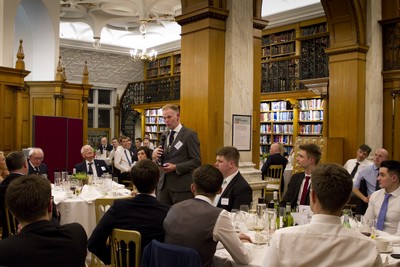 | The current President Howard Stone Wh.Sch. (2002) |
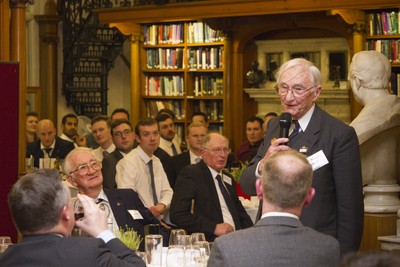 | Dr Michael Wood Wh.S.Sch. (1953) |
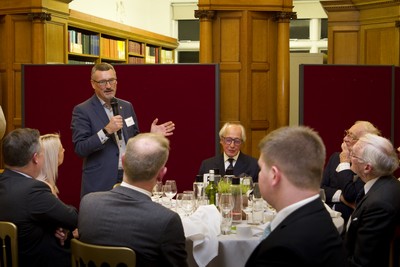 | Former IMechE President Jon Hilton |
PE Article - Engineering hero and Victorian visionary Sir Joseph Whitworth
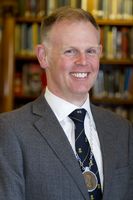 | The February 2018 edition of Professional Engineer features an interview with the current President Howard Stone where he discusses the legacy of Sir Joseph Whitworth and the Whitworth Awards Scheme. |
Summer Meeting 2016
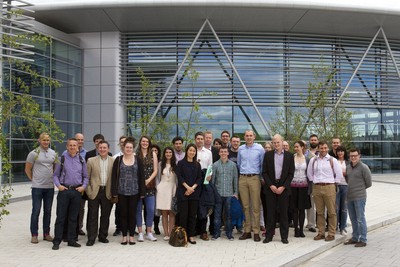 | Summer Meeting 2016 - Factory 2050 |
Summer Meeting 2014
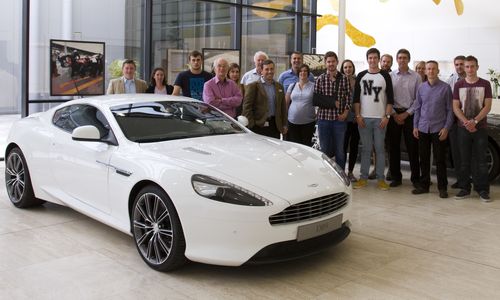 | Summer Meeting 2014 - Aston Martin Cars |
Summer Meeting 2013
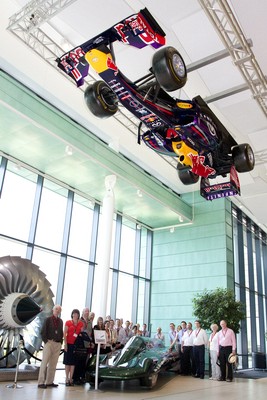 | Summer Meeting 2013 - MTC |
Summer Meeting 2012
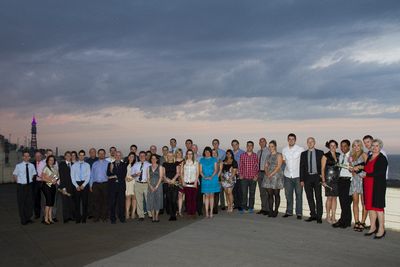 | Summer Meeting 2012 - Group photo on Blackpool Promenade |
Summer Meeting 2011
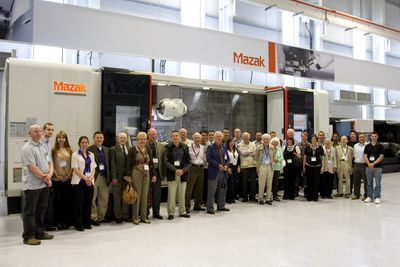 | Summer Meeting 2011 - Group photo at Mazak Machine Tools |
Summer Meeting 2010
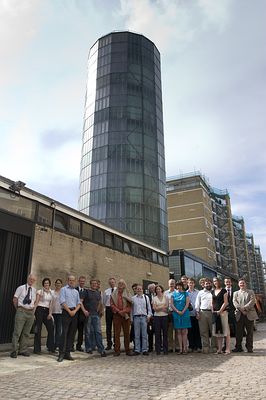 |
Professor Sir Hugh Ford
It is with deep regret that the Society has learned of the death of Professor Sir Hugh Ford on the evening of Friday 28th May. The IMechE website contains an obituary for Sir Hugh. Registered members can log into the site for more details about Sir Hugh's lasting contribution to the awards scheme, the society and the details of his Presidential year in 1974.
< Page 1 of Results Page 3 of Results >

